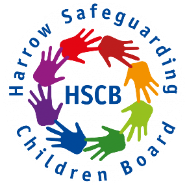E-Safety (Parents & Carers)
 Online Safety is becoming an increasingly bigger issue to consider in safeguarding children and young people. Below are some common signs that are shown by children and young people if they find themselves in a situation where they are not comfortable. If a child or young person shows signs similar to those below, it doesnt mean that the child is being groomed, these are just some of the signs to look out for if youre worried:
Online Safety is becoming an increasingly bigger issue to consider in safeguarding children and young people. Below are some common signs that are shown by children and young people if they find themselves in a situation where they are not comfortable. If a child or young person shows signs similar to those below, it doesnt mean that the child is being groomed, these are just some of the signs to look out for if youre worried:
- excessive use of the computer
- aggressive behaviour regarding internet usage
- secretive behaviour
- change in use of sexual language
For further information about online safety for children and young people please visit:
www.ceop.gov.uk or www.thinkuknow.co.uk
For advice on how to keep your child safe online
You can report it here.
By visiting the Child Net site (link below) you will find information you need to keep your child safe online . If you were looking for Know IT All for Parents, you have come to the right place.
Whether youre puzzled by parental controls or would like to know more about gaming, this section can help. We all know that it can sometimes be challenging to keep up to speed with what children and young people are doing online. Luckily on this site youll find a whole host of useful ways to keep your child safe.
Parenting in the Digital Age (or PitDA for short) is a new programme to help parents apply their parenting skills to the online world. Dont worry; PitDA takes a simple, straightforward approach, so you dont have to be a technical expert.
There are three areas to think about:
WHO your child is talking to,
WHAT theyre doing, and
WHERE theyre going online
Parent Handout
The technology timeline for kids and teens is far from straightforward. Not every seven year old / 10 year old / 15 year old uses the same technologies it depends on things like how mature they are, what their parents views are and what devices they have access to at home, at school and at their friends houses.
With this in mind, we decided not to divide all the contents of Digital Parenting by age group. But we do understand that it can be helpful to have specific advice by age, so weve pulled together some key action points to help your son or daughter enjoy their digital world and stay safer at various ages.
Weve started with an ˜essentials checklist for parents of children of any age, which highlights the actions you should take for your whole family. Then we have suggestions for parents with children of different ages
Access to Vodafone Digital Parenting Magazines: http://www.vodafone.com/content/parents/get-started.html
You may find this free Digital Parenting magazine, designed for parents on e-safety, useful: http://www.theparentzone.co.uk/vodafone_digital_parenting_order_form/5248
Share Aware
Share Aware overview
Share Aware, from NSPCC and O2, gives parents all the tools they need to have regular and informed conversations with their child about staying safe online. Under 20% of parents discuss online safety regularly with their children but we want to get every family talking about their childs life online, just as they would their day at school.
Parents can sign up to the Icebreaker email series and become an expert in their childs online world in 6 weeks, follow our four simple steps to keeping kids safe online, watch our film ˜Safety advice from a 10 year old or visit Net Aware our guide to your childs social networks apps and games.
The internet is a great place for kids to be, being Share Aware makes it safer.
Suggested Tweets (We are asking people to tweet between 9am and 12 on launch morning, Tuesday 16th
- Just like in real life, kids need our help to stay safe online. Teach your child to be #ShareAware with @NSPCC and @O2 https://www.nspcc.org.uk/preventing-abuse/keeping-children-safe/share-aware/
- Teach your child to be #ShareAware online, with step-by-step advice from @NSPCC https://www.nspcc.org.uk/preventing-abuse/keeping-children-safe/share-aware/
Digital Dangers Report – November 2015
The impact of technology on the sexual abuse and exploitation of children and young people.
Download Digital Dangers Report
What’s the problem? A guide for parents of children and young people who have got in trouble online
http://www.parentsprotect.co.uk/files/Parents%20Pack_Whats%20the%20problem_11Mar2015.pdf
The Internet and Children – What’s the Problem
This leaflet encourages people to question their own use of the new technologies, including the Internet, and to seek advice. It provides the information needed to recognise the tell tale signs that someone may be using the new technologies in sexually inappropriate or harmful ways and enables people to build up confidence to do something about it. It also gives tips about how to help children remain safe whilst on the Internet.
http://www.parentsprotect.co.uk/files/stop_booklets_the_internet_and_children_whats_the_problem01_14.pdf
Lucy Faithfull Foundation: A guide for parents of children and young people who have got in trouble online – Download
A parents guide to being Share Aware Guide to keep your children safe online – Download
A Parents’ Guide to Snapchat – Download
DfE: Advice for parents and Carers on cyberbullying – Download
Pokamon Go is a game where you collect and trade cute creatures called Pokamon (Pocket Monsters).
It’s one of the first popular games to use “augmented reality” – a kind of cross between real life and an online world. The game makes it look like Pokamon appear in real life places by using the GPS and camera on your phone.
Although there are many good features of the game, there are some safeguarding risks to children.
For further information see- Pokemon Go a parents guide
The UK Safer Internet Centre shares tips for parents on talking to their children about online safety ahead of the new school year. These include: encourage the child to share their online experiences with you by talking about your own experiences and asking for their opinions; if a child does come to you with a problem, stay calm and listen then find a solution together.
The Evidence Group of UKCCIS (UK Council for Child Internet Safety) has published a summary of the key findings from research by the NSPCC and FACTs International about the knowledge that parents have of sexting and young people. Key findings which are highlighted include: 73% of parents believe that sexting is always harmful and 37% are concerned that their child may become involved in sexting in the future.
Source: UKCCIS Date: 25 August 2016
Further information: Sexting and young people: the parents view (PDF)
PACE (Parents Against Child Sexual Exploitation) Online Training
(Training for professionals and parents)
Equip yourself with the knowledge to protect your children against sexual exploitation
Thousands of children in the UK are at risk of being forced or manipulated into sexual activity in a form of abuse called child sexual exploitation.
This abuse can happen to any child, anywhere. Knowing what to look for is an important way you can help to protect your children.
The Course
Parents Against Child Sexual Exploitation (Pace) and the Safeguarding Children e-Academy have teamed up to provide this short (20-30mins) online course.
https://keepthemsafe.safeguardingchildrenea.co.uk/
NUDE SELFIES: What Parents and Carers Need to Know
We’re delighted to announce the launch of ‘Nude Selfies: What Parents and Carers Need to Know’. This is a series of four short animated films for parents and carers offering advice on how to help keep their children safe from the risks associated with sharing nude and nearly nude images.
The films aim to help parents and carers:
Understand young people’s motivations for sending nude selfies.
Plan to respond positively and constructively to an incident in which their child has shared a nude selfie.
Gain confidence and skills in initiating preventative conversations.
Identify risky behaviours or situations and know where to seek help.
Know how to get help if a child is at risk after sharing an image.
The Nude Selfies films are accompanied by a guidance pack including a suggested session plan and practitioner guidance for delivering an effective workshop. We would encourage practitioners to use all channels available to disseminate these short films to their communities, such as emailing, texting, tweeting links to them from our www.youtube.com/ceop channel.
They are based on research findings from the European Commission-funded SPIRTO (Self-Produced Images: Risk Taking Online) Project and include:
Film One: Understanding Why
Film Two: Talking to your child
Film Three: When should I be worried?
Film Four: How to get help
The films are based on a two-year qualitative investigation led by the University of Edinburgh in partnership with the University of Linköping (Sweden), Innocence in Danger (Germany) and the CEOP Command of the National Crime Agency.
You can download Nude Selfies: What Parents and Carers Need to Know now! You’ll find it under the ‘Parents’ tab in the Resources section of your online account at www.thinkuknow.co.uk/teachers/resources
Don’t forget you’ll find plenty more resources for use with children and parents at www.thinkuknow.co.uk/teachers
The Parents and Carers Guide to the Internet, has been created by CEOP to provide a light hearted and realistic look at what it takes to be a better online parent.
Watch this short clip to find out more.
The show covers topics such as, talking to your child about the technologies they use and the things they might see, such as pornography.
With interviews from leading experts such as, Professor Tanya Byron, Dr Linda Papadopoulos and Reg Bailey, as well as key industry players from Facebook, Club Penguin and Moshi Monsters, this online guide aims to equip you with the tools to have those tricky conversations with your children and keep your family safe online.
So grab a cuppa, sit back and enjoy!
‘Keeping up with the Joneses’ is a short 50’s style trailer that aims to get parents and carers thinking about their children’s online lives.
You may have been tempted in the past to send naked pictures or videos of yourself, perhaps to a friends mobile, on a web cam, or on social media.
Some people call this sexting, cybersex or sending a nudie. This makes it sound exciting and fun. It can feel really private too.
But sexting is never private. All images can be saved or ˜screengrabbed by the person receiving it even if you think you are using a private network or a temporary message app like Snapchat.
Once a photo is shared online, you have lost all control of it and it will be virtually impossible for you undo. Even if you change your mind and delete the photo you uploaded, other people may have already shared or copied the image. This puts you at risk of abuse or exploitation by others.
Find out more from this great website; http://www.itsnotokay.co.uk/what-is-it/online-safety-and-sexting/

